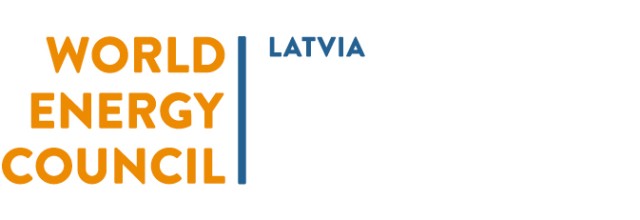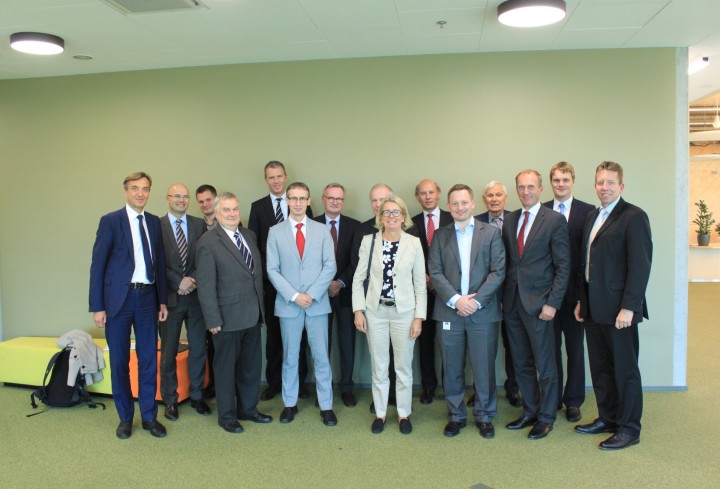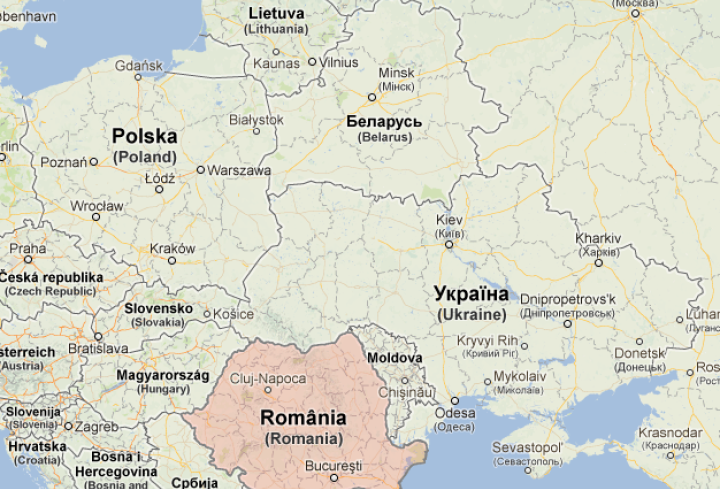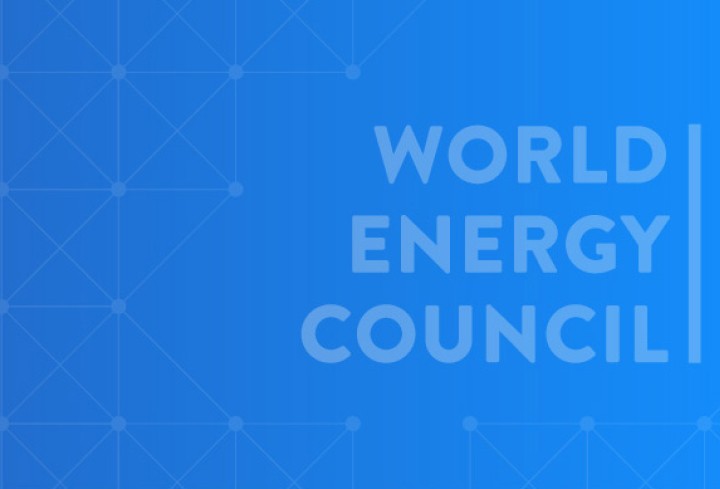The main tasks of the Latvian Member Committee are to cooperate with the World Energy Council and the other National Committees, as well as other national and international energy organizations; encourage domestic energy exploration, extraction, recycling and efficient use; promote the transportation of imported energy resources, conversion and use in all respects; address energy supply problems taking into account social and environmental aspects; act as an information coordinator to work with other energetic problem solving organizations; participate in congresses, assemblies, conferences, forums, and other events and to organize them; and disseminate information on its activities.
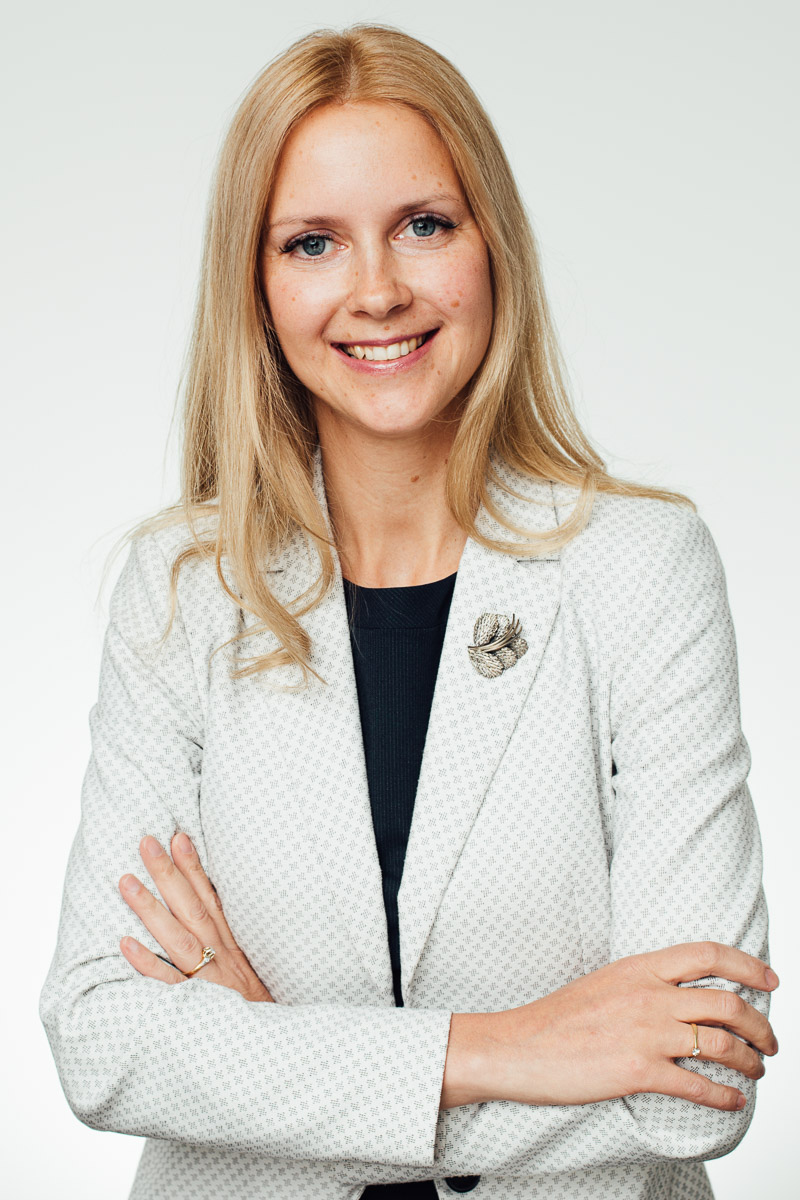
Dr. Olga Bogdanova, President of the Latvian National Committee of the World Energy Council, Associate Professor of the University of Latvia, Faculty of Business Management and Economy, Director of Tax Administration and Society Interests Policy Department at the Ministry of Finance of the Republic of Latvia, Deputy Chair of the Supervisory Board at power transmission system operator JSC Augstsprieguma tikls having a controlling stock of gas transmission and gas storage system operator JSC Conexus Baltic Grid, Member of the Studies Committee and expert at World Energy Council, FEL-100 program alumni, Chair of the Future Energy Leaders Latvia (FEL Latvia) program. Author of more than 35 scientific papers and co-author of 4 monographs. She has a Doctor of Economics degree (2012) and is an expert of the Latvian Scientific Council in the field “Economics” (since 2017).
Energy in Latvia
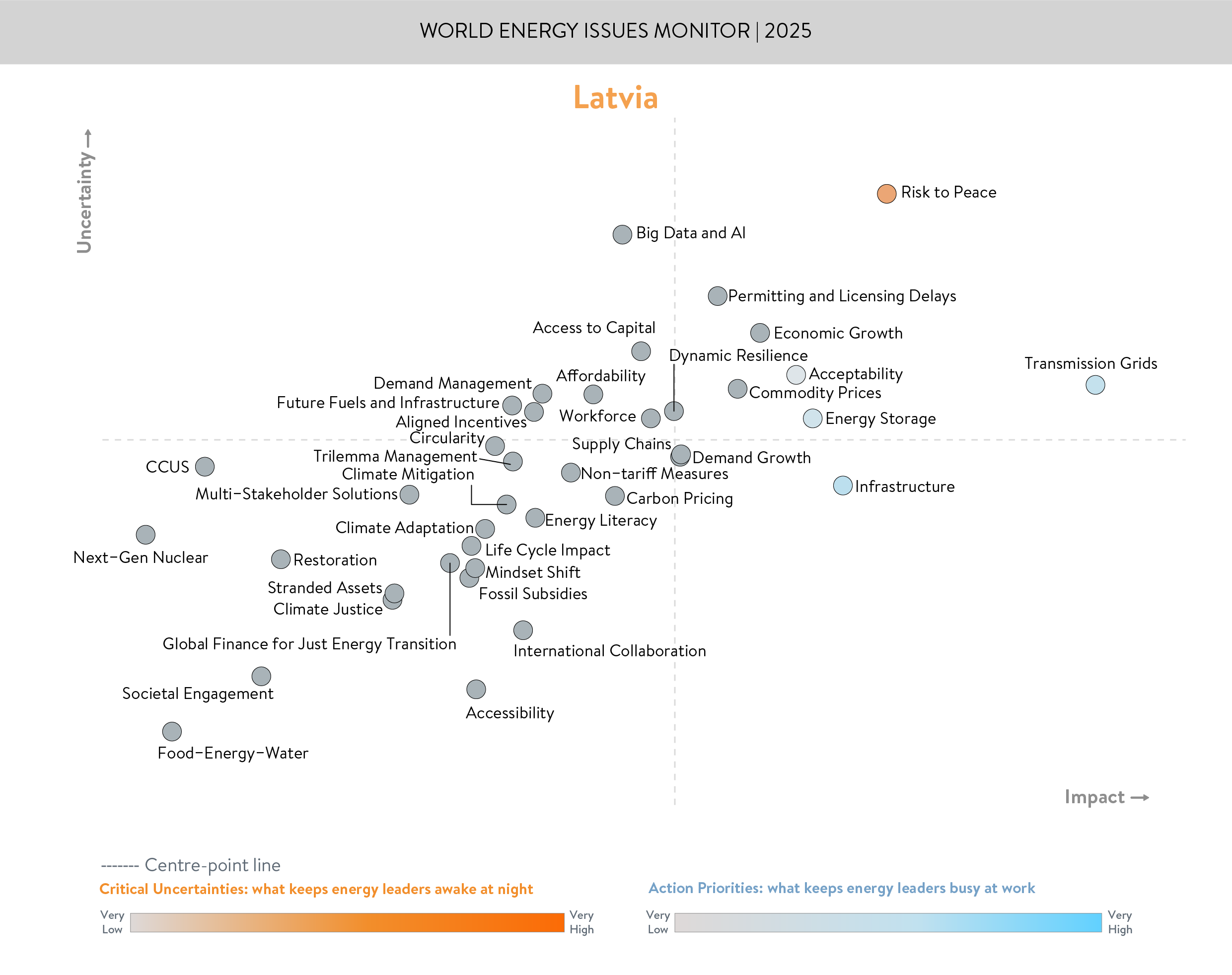
ENERGY ISSUES IN MOTION
Significant developments in Latvia’s energy landscape in 2024 were the result of a combination of general geopolitical situation, rapid digital transformation and topicalities related to critical infrastructure. Latvia, strategically located in the Baltic region, continues facing geopolitical tension and uncertainty, which affects its energy security strategies and the need for stronger cooperation and resilience. In February 2025, the Baltic States successfully synchronized with the electricity grid of the continental Europe, which was a critical milestone in reducing historical dependencies. However, the broader context of Latvia’s energy policy and planning continues to a high extent be defined by ongoing geopolitical tensions.
Thus, Latvia is actively addressing global climate and sustainability goals, implementing an ambitious expansion of renewable energy projects, which have significantly changed the country’s energy mix. In line with the goals of the European Green Deal, Latvia’s transition to healthier and domestically produced energy sources contributes to its commitment to environmental sustainability and energy independence.
Technological innovation and digitalization are facilitating Latvia's energy transition. While the potential of "big data and artificial intelligence" to transform energy management by improving forecasting, optimization, and grid efficiency is enormous, the practical functioning of the energy market and regulatory frameworks is still evolving. After synchronization with the central European grid, the Baltic balancing market just started its operation and needs time to mature.
In addition, the complexity of administrative processes, such as delays in permitting and licensing, environmental protection requirements as well as grid connection access pressures, continues to pose challenges.
Top Critical Uncertainty: Geopolitical Risks
The most pressing uncertainty for Latvia remains geopolitical situation (“Risk to Peace”). The Baltic region’s security environment, marked by tensions and military conflicts in Eastern Europe, continues to pose a significant threat to energy supply security. The synchronization of Baltic states with the continental European electricity grid in February 2025 was a crucial step towards mitigating these risks. Nonetheless, the volatility stemming from geopolitical tensions continues to necessitate vigilant planning and resilience strategies.
Digital Transformation Challenges: "Big Data and AI" emerges as another significant uncertainty. Despite its vast potential for optimizing energy management, forecasting consumption, and enhancing grid stability, Latvia still experiences challenges related to practical integration and regulatory clarity. The increasing share of renewable energy sources in energy mix, and the recently started the Baltic balancing market, bring a new ambition and need for digital transformation.
Administrative and Investment Barriers: Delays in permitting and licensing processes significantly affect energy projects. Latvia has made notable progress by clarifying guidelines and digitalizing regulatory procedures, yet considerable work remains. A key challenge is local municipalities introducing additional local requirements, causing uncertainty. Therefore, streamlining local regulations and improving coordination between national and municipal levels is critical for accelerating Latvia’s energy transition. An important progress is also reached with another distracting issue – grid access requirements, by developing a regulation enabling additional capacities for grid connections to energy producers (which starts functioning in 2025).
Top action priority: grid modernization and synchronization
Energy grid development and the successful synchronization of the Baltic states with the European grid stand out as Latvia’s primary action priority. Modernizing transmission infrastructure is crucial to integrating renewable energy sources, enhancing grid flexibility, and ensuring long-term regional energy security. This direction is marked as a top priority with not much question marks but just need to continue the actions of the current course taken.
Energy Storage Solutions: Energy storage systems are increasingly prioritized, reflecting their importance in balancing renewable energy integration. The Baltic Balancing market just started to operate, and batteries as technology are highly welcome to join it as they play an important role in ensuring adequate price for the balancing service.
Economic Growth And Capital Access: The European Union, and also Latvia as its member state, faces challenges with economic growth, having an impact on the development of energy projects and energy transition. Improving the investment climate and ensuring capital accessibility are pivotal. Stable economic growth and robust financing mechanisms support energy projects and attract investments in renewable energy and digital technologies.
FROM BLIND SPOTS TO BRIGHT SPOTS
Blind spots
Public Engagement and Energy Literacy: Public engagement remains limited, hindering progress towards a decentralized, community-based energy model. Historically limited attention was paid to communication with society on practical aspects of energy transition projects. NIMBY phenomenon hinders considerably the development of renewable energy projects. Increasing the financial interest of the local communities and the neighboring citizens, strengthening consumer awareness, involvement through energy communities and microgeneration initiatives could significantly enhance sustainability and acceptance of energy transition projects. The regulation providing benefits to the surrounding society of the wind parks has been recently adapted in Latvia.
Energy Efficiency Initiatives: Despite substantial projects, Latvia must accelerate its energy efficiency efforts. Enhanced regulatory oversight, targeted incentives, and a shift from formal compliance to genuine efficiency outcomes are necessary to reduce wastage and optimize energy use across sectors.
Digitalization of Energy Systems: Practical implementation of digital technologies and smart grids has further huge potential. Expanding real-time data management, AI-driven analytics, and automated grid operations are critical to achieving greater energy efficiency and grid stability.
Circular Economy: The circular economy remains underutilized in Latvia’s energy sector. Investment in biogas, waste-to-energy, and industrial byproduct regeneration technologies is required to integrate circular economy principles into the energy system effectively.
Workforce Skills Gap: Rapid transition demands skilled professionals in engineering, data analytics, and automation. Latvia faces a workforce shortage in these areas, necessitating stronger collaboration between industry and academia to ensure a future-ready workforce.
Bright spots
Baltic Synchronization with European Grid: The successful synchronization with continental Europe’s grid in February 2025 is a landmark achievement, significantly enhancing energy security and reducing geopolitical risks. This milestone demonstrates effective regional cooperation within the last 15 years and robust infrastructure capabilities.
Renewable Energy Expansion: Rapid growth in solar and wind energy projects aligns with European Green Deal objectives, significantly reducing emissions and increasing energy independence. This momentum underlines Latvia’s aim to decrease energy dependency and commitment to sustainable development.
Energy Communities: One of Latvia’s the most impactful developments in 2024 was the introduction of a flexible connection framework, which enables grid operators to offer conditional access to the electricity network, unlocking up to 4 GW of new renewable energy capacity. This approach allows developers to connect earlier under specific operational constraints, addressing the grid congestion challenge and providing greater certainty for investors. The model has significantly increased the pace of renewable project planning and is considered a practical solution to maximize existing grid infrastructure while more extensive reinforcements are underway.
Alongside this, public engagement policies have seen early steps forward, most notably through Cabinet Regulation No. 577, which mandates compensatory payments from wind park developers to municipalities and nearby households. These payments support local development and help foster community acceptance of large renewable energy projects. Additionally, Cabinet Regulation No. 808, adopted in late 2024, provides a legal foundation for the formation of energy communities.
Going forward, to foster public trust and increase local engagement, it will be necessary to simplify administrative procedures, ensure secure communication, and promote financial participation models that provide tangible benefits to affected communities.
ADDRESSING CRITICAL UNCERTAINTIES TO BALANCE THE WORLD ENERGY TRILEMMA
To effectively balance the energy trilemma of security, affordability, and sustainability, Latvia needs a coordinated and forward-looking approach that addresses both gaps and new opportunities. The 2025 Issues Monitor highlights several areas where strategic action is particularly needed.
Improve grid modernization and proceed with the grid synchronization with Continental Europe (realized in February 2025) to strengthen security of supply and reliable integration of renewable energy sources. Uninterrupted transmission infrastructure is essential to maintain system stability and support cross-border energy flows.
Streamline the regulatory and administrative framework, especially at the municipal level, where fragmented permitting processes can delay project implementation. Harmonizing national and local regulations will facilitate private investment and increase developer certainty.
Promote energy efficiency through targeted support schemes, stronger monitoring of real efficiency results (not just formal compliance), and broader public engagement. It is crucial to move from "saving" to "targeting and using" energy.
Accelerate digital transformation by further developing the balancing market, investing in smart grids, AI-based forecasting tools, and real-time data management systems. Clear regulatory framework and active market participants entering the market are needed to move from pilot initiatives to larger integration systems.
Improve circular economy solutions, in particular in the areas of biogas production, industrial product reuse, and waste-to-energy projects. These initiatives improve sustainability and reduce dependence on imported energy.
CONCLUSION
Latvia’s energy transition is characterized by a dynamic interplay between structural challenges and significant achievements. While the accelerated deployment of renewable energy projects and the growing interest in decentralization demonstrate a commitment to long-term sustainability, the successful synchronization with continental European grids represent a strategic shift in energy security. At the same time, just created the Baltic balancing market, fragmented permitting processes, geopolitical risks, and energy price volatility continue to shape the landscape and require targeted action.
Latvia is currently at a critical juncture where the quality and pace of its energy future will be determined by coordinated policies, investments in resilient infrastructure, and inclusive stakeholder engagement. Sustained public awareness and workforce readiness will be key to the development of energy generation projects, energy communities, circular economy initiatives, and smart grid technologies, as well as regulatory clarity.
To become a regional leader in secure, affordable, and sustainable energy, Latvia must strategically address these challenges, including reducing administrative barriers, promoting innovation, and increasing system flexibility. Making bold decisions, promoting cross-sectoral cooperation, and maintaining a long-term perspective are imperative to ensure that the energy transition brings tangible benefits to the economy and local society.
Acknowledgements
Latvia Member Committee
Downloads
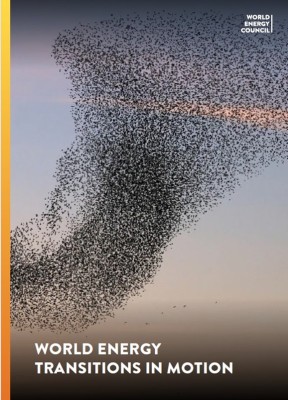
Latvia World Energy Issues Monitor 2025 Country Commentary
Download PDF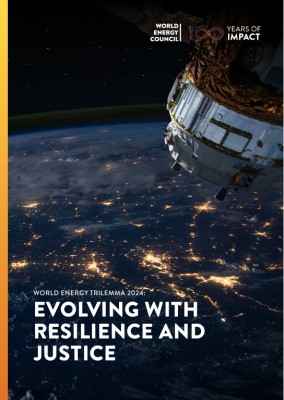
Latvia World Energy Trilemma Country Profile 2024
Download PDF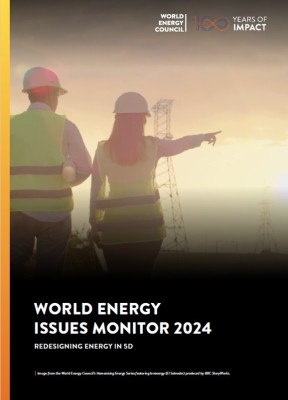
Latvia Energy Issues Monitor 2024
Download PDF
World Energy Issues Monitor 2024
Download PDF


